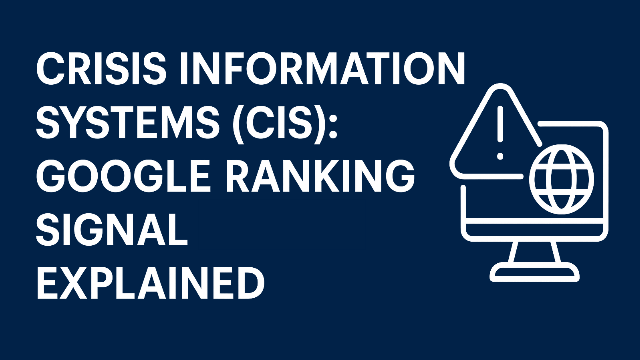Guest Blogging Tips to Boost Local SEO Rankings: A Proven Strategy for Success
Guest blogging is one of the most effective ways to improve local SEO rankings. It helps you build backlinks and strengthens your online presence within your local community.
In this article, we’ll explore essential guest blogging tips that can significantly boost your local SEO rankings. By the end, you’ll have a clear strategy to leverage guest blogging for better visibility and higher search engine rankings.
Why Guest Blogging is Essential for Local SEO Rankings
Guest blogging isn’t just about writing articles for other websites. It’s a strategic approach to reach a new audience, build relationships, and earn high-quality backlinks. When done correctly, it can help improve your local SEO rankings in several ways:
- Building Local Backlinks: Backlinks from local websites signal search engines that your business is relevant to the area.
- Boosting Local Authority: Publishing on reputable local sites positions you as an expert in your niche.
- Driving Targeted Traffic: Local guest blogging attracts readers who are already interested in what you offer.
- Improving Brand Awareness: It increases your visibility among local audiences, helping you connect with potential customers.
Clearly, guest blogging is a powerful tool to enhance your local SEO. But how do you do it effectively? Let’s find out.
10 Expert Guest Blogging Tips to Boost Local SEO Rankings
To see real results, you need to approach guest blogging strategically. Here are ten expert tips to guide you:
- Define Your Goals: Before you start, identify your objectives. Do you want to build backlinks, drive traffic, or establish authority?
- Focus on Local Relevance: Choose blogs and websites that cater to your local audience. Relevance is key to improving your local SEO rankings.
- Research High-Quality Sites: Look for websites with good domain authority (DA) and a solid reputation in your niche.
- Craft Valuable Content: Ensure your guest posts are informative, engaging, and tailored to the target audience. Avoid overly promotional content.
- Include Local Keywords: Integrate location-based keywords naturally into your content to target local search queries.
- Add a Relevant Backlink: Always link back to your website or a specific local landing page. Make sure the link fits naturally within the article.
- Engage with Readers: Respond to comments on your guest posts to build connections and show expertise.
- Track Your Results: Monitor traffic, backlinks, and rankings to measure the effectiveness of your guest blogging efforts.
- Follow Submission Guidelines: Adhering to the host blog’s requirements ensures your posts get accepted without unnecessary delays.
- Stay Consistent: Guest blogging is not a one-time effort. Regular contributions will yield better long-term results.
How to Find the Perfect Guest Blogging Opportunities in Your Niche
Finding the right platforms to publish your guest blogs can be challenging, but it’s crucial for success. Here’s how to identify suitable opportunities:
- Use Search Engines: Search for local blogs using queries like “local [industry] blogs accepting guest posts.”
- Explore Social Media: Platforms like LinkedIn and Twitter often feature local blogs and websites.
- Join Online Communities: Participate in forums, groups, or local online communities related to your industry.
- Analyze Competitors: Look at where your competitors are in guest blogging. This can provide valuable leads.
- Use Outreach Tools: Tools like BuzzSumo and SEMrush can help you find blogs that accept guest posts.
Once you’ve identified potential blogs, reach out with a personalized pitch highlighting your expertise and how your content will benefit their audience.
Optimizing Guest Posts for Maximum Local SEO Impact
Creating a guest post isn’t enough; you need to optimize it for local SEO. Here’s how:
- Include Local Keywords: Use terms like city names, neighborhood references, and local phrases throughout your post.
- Optimize Anchor Text: The text you use for backlinks should include relevant local keywords, such as “plumber in Chicago.”
- Add Location-Specific Examples: Use examples, case studies, or scenarios relevant to your local audience.
- Leverage Images: Include location-based images or infographics to make your post visually appealing.
- Write for Humans and Search Engines: While SEO is important, your content should be easy to read and provide value to readers.
Common Mistakes to Avoid When Guest Blogging for Local SEO
Even the best intentions can lead to mistakes that harm your SEO efforts. Here are some common pitfalls and how to avoid them:
- Ignoring Local Relevance: Publishing on irrelevant websites won’t help your local SEO rankings.
- Over-Optimizing Keywords: Stuffing your content with keywords can make it unreadable and harm your rankings.
- Skipping Quality Checks: Low-quality content reflects poorly on your brand and may not get published.
- Using Generic Backlinks: Linking to your homepage without context won’t add much value.
- Failing to Follow Guidelines: Not adhering to submission rules can result in rejection.
Avoiding these mistakes ensures your guest blogging efforts are fruitful and aligned with your local SEO goals.
How Guest Blogging Can Attract Local Backlinks and Drive Traffic
Guest blogging is one of the most effective ways to earn local backlinks. When you publish high-quality posts on local websites, they often include a backlink to your site. These backlinks improve your domain authority and help search engines understand your local relevance.
Additionally, guest blogging drives targeted traffic. Readers who find value in your content are more likely to visit your website, increasing engagement and potential conversions. Over time, this traffic signals search engines that your site is a reliable resource, further boosting your local rankings.
Using Guest Blogging to Build Local Authority and Brand Awareness
By publishing guest posts on reputable local blogs, you establish yourself as an authority in your industry. This not only enhances your reputation but also builds trust among your audience. Consistently sharing valuable insights positions your brand as a go-to resource within the local community.
Moreover, guest blogging increases brand awareness. The more your name appears on trusted platforms, the more recognizable your brand becomes. This recognition leads to higher credibility and a stronger connection with your local audience.
Measuring the ROI of Your Guest Blogging Efforts for Local SEO
It’s essential to track the return on investment (ROI) of your guest blogging campaigns. Here are a few metrics to monitor:
- Backlinks Earned: Track the number and quality of backlinks you’ve gained.
- Website Traffic: Analyze how much traffic your guest posts are driving to your site.
- Engagement Rates: Monitor comments, shares, and other interactions on your guest posts.
- Local Keyword Rankings: Check if your rankings for local keywords are improving.
- Lead Generation: Measure how many leads or conversions your guest blogging efforts are generating.
Using tools like Google Analytics, SEMrush, or Ahrefs can make tracking these metrics easier.
Conclusion
Guest blogging is a powerful strategy to boost local SEO rankings. By targeting local websites, optimizing your content, and building meaningful relationships, you can drive traffic, gain authority, and improve your search engine rankings. Follow the tips outlined in this article to maximize the impact of your guest blogging efforts. With consistency and dedication, you’ll see measurable results in no time.





